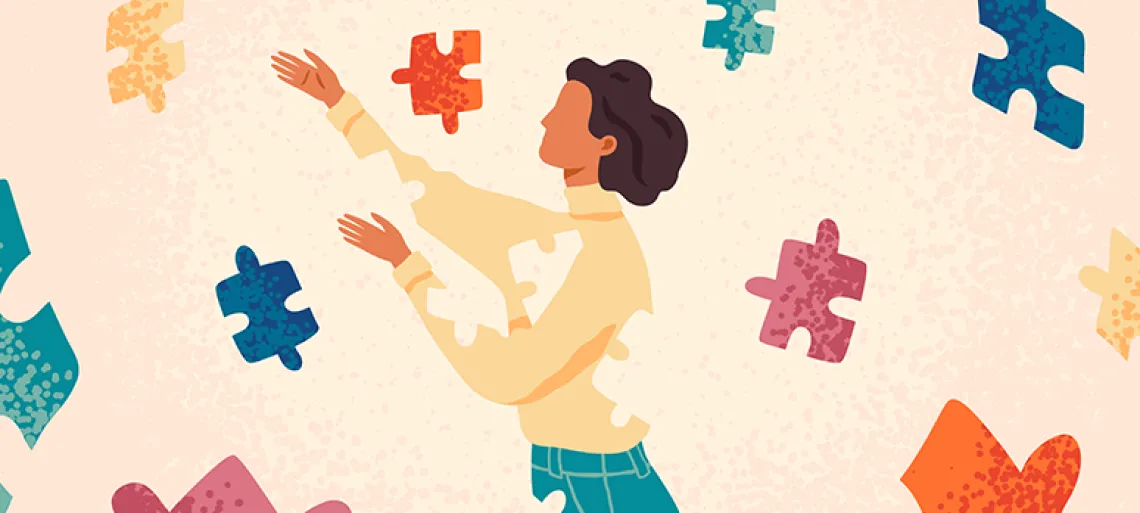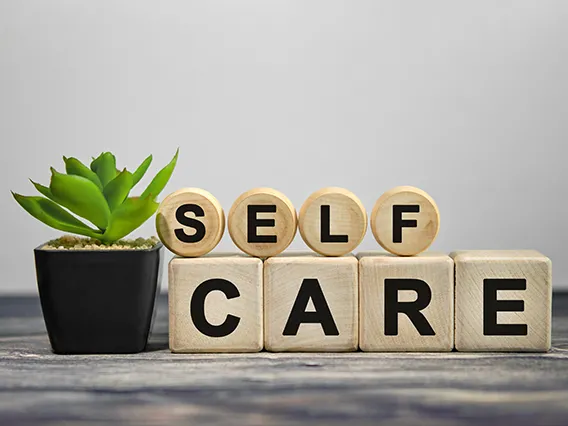When You Think Self-Care Doesn't Work

My name is Laqwanda Roberts-Buckley. I am the Mental Health & Wellness Specialist for Life & Work Connections here at U of A. I have written this self-care article more times than I wanted. I tried my best to make this article sound “appropriate” for an academic environment and every time I found myself deleting it. The more I attempted to write the “perfect” words the more I realize why nothing came out the way I needed. It’s because I understand that many people do not believe self-care works or is worth the time or energy to do it.
Even though I have developed a nice presentation about self-care, I truly understand there are instances when self-care is the last thing on your mind. I also understand that the concept of self-care and implementing it might not change anything about that thing, situation, person, etc. that pulls on you emotionally. For example, personally, I could take hundreds of walks, do thousands of breathing exercises, and meditate for millions of hours. However, those things would NEVER change the fact that I manage both Bipolar I Disorder and PTSD.
Maybe for you, it’s not a mental health condition. Maybe for you, the thing you cannot change is supporting and hearing a student's life story that brings you to tears. Maybe for you, it’s coming to work each day carrying the emotional weight of caring for a sick loved one at home. Maybe for you, it’s dealing with overwhelming grief each day after losing someone close to you and you are trying to figure out how to manage through each workday. Maybe for you, it's experiencing financial struggles that no one is aware of as you force yourself to smile when your coworker speaks in the morning. Maybe for you, it’s feeling a lack of support from a supervisor or feeling invisible and underappreciated by the University as a whole.
The misconception about self-care is that, when something happens, a “self-care technique” is going to make it instantly go away. I’ve had this thought myself in the past. However, I have learned that self-care was never designed to make anything in my life “go away”. For me, it was a tool meant to help me get through and manage aspects of my life. I like to view it like a puzzle. There are the pieces of the puzzle and then there is the picture on top of the box that serves as a guide in putting the pieces together. Self-care is the top of the box. It does not magically put the pieces of the puzzle together for you, but it does offer help.
Let’s think about life as a puzzle of the night sky. The task of putting 1,000 pieces together could feel relaxing, challenging, and maybe frustrating all at the same time. If we are honest here, do you really know the difference between midnight blue and dark blue? That’s why we use the puzzle box as a guide for those stuck moments or to simply develop a daily plan of action. When we put together the pieces of our day, week, or month, we might need guides to assist with the frustration that may come our way or to maintain balance. The guide might be a simple technique that keeps you focused during the week of a major project is announced or an important meeting is taking place. Whatever you choose to use, remember it isn’t designed to make the week disappear. The guide or technique is meant to assist you with maintaining the course, reevaluating the course, changing the course, or offering a moment to catch your breath.
There is not an article or presentation that I could write or develop that would resolve all the issues that I know we all face both before and after work. I just wanted to truly take the time out to say that I understand what good and bad days feel like. And I know what it is like to roll my eyes and say, “Drinking a cup of tea isn’t going to fix the situation”.
In my 16 years of serving in the mental health field, I fully acknowledge that the concept of self-care has become a watered-down commercialized impersonal experience. However, caring for and about yourself has not. Hearing reminders that you are valuable and that you deserve moments that validate both your struggles and successes has not. When we remind ourselves that self-care is caring for ourselves, we acknowledge and reconnect to our human experience. So, if you are feeling that self-care does not work maybe give caring for yourself a try. It might not solve the puzzle, but it could guide you along the way. So, if you see my name next to a workshop, know that my goal is not to solve the puzzle for you, but I am hopeful that I can assist in showing you what the top of your puzzle box looks like.

Rethinking How We View Self-Care
Do you often feel as if there is never enough time to practice self-care? This presentation discusses misconceptions regarding self-care and how we can successfully integrate it into our lives.

